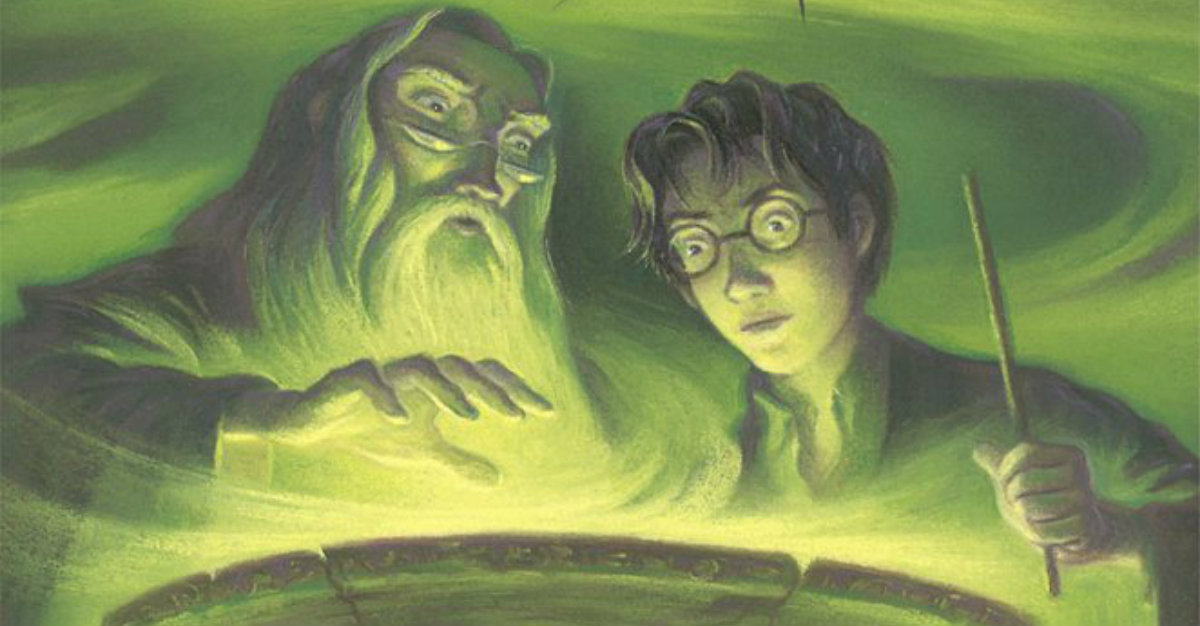In Harry Potter and the Half-Blood Prince, J.K. Rowling introduces readers to a new character by the name of Horace Slughorn. Professor Slughorn serves as the Potions Master throughout Harry’s 6th year at Hogwarts, and quickly establishes himself as a shrewd and capable educator. Yet, for all his knowledge and charisma, Slughorn is only interested in teaching a select handful of students. His “Slug Club” consists of the best and brightest, students whom he believes are destined for greatness. As for the rest, well, they’re pretty much on their own.
The ironic part of this whole situation is that Slughorn is ultimately proven wrong. Students he casually dismissed as untalented or mediocre end up playing crucial roles in the fight against Voldemort. Just take Neville Longbottom, who grows into a brave and selfless leader. The class oddball, Luna Lovegood, reveals a unique gift for empathy, while Ron Weasley helps save the world! As readers, it’s easy to criticize Slughorn for overlooking his most promising pupils, but how many of us have make the same mistake?
The Sorting of Students
We could spend hours discussing who our culture values and who it doesn’t; who we see and who we don’t. For the moment though, let’s focus on the direct connection to the classroom. Odds are you haven’t created your own version of the Slug Club, but you have formed impressions of your students. You need to ask yourself, “Am I investing the same energy in the class clown as the over-achiever? Am I as committed to the awkward introvert as I am the outgoing self-starter?” Just a reminder that if you’re spending 95% of your time on only 5% of your students, you can’t be upset when the rest fail to show growth.
Find the Magic
The reality is, what we choose to see in a person often determines what they reveal to us. Do you see the capacity for greatness in each student? If you need a refresher, here are a few methods to change your perspective:
- Instead of a Troubled Child: See a child who is deep-feeling and carries the potential for great empathy. Consider how their emotional intelligence could help them in the future. Perhaps you might even find ways to turn their feelings into motivation?
- Instead of an Angry Kid: See a child with strong reactions. Recognize that these moments don’t need to be negative. Give them direction and a clear mode of communication, then show them how to channel their responses into a positive force for good.
- Instead of an Ignorant Pupil: See a blank slate with hidden talents. Help them discover their passion and the confidence they need to reach toward success. How can you assist them in finding their calling?
Every-Flavored Beans
Sure, not every student will grow up to be “The Chosen One” but not all greatness looks the same either. Each child possesses their own unique skills and abilities which they can use to change the world. Are they a compelling speaker? Help them take a stand on an issue they care about. Does one enjoy playing with numbers? Show them how to calculate interest over 50 years! When you see them for who they can become, you might just discover a little magic in yourself too.
What about you? How do you find the greatness in your students? Please share your thoughts!
*Today’s image brought to you by Harry Potter and the Half-Blood Prince by J.K. Rowling.


